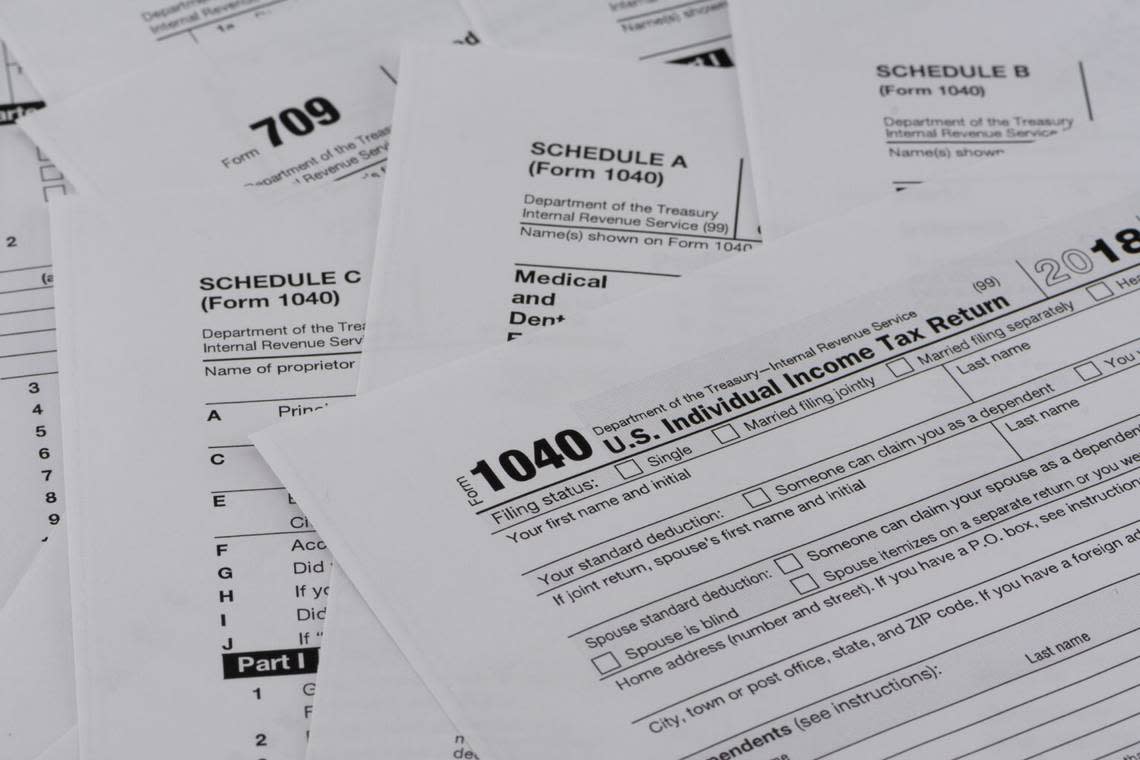IRS told Californians they owe money for missed tax deadline. Do you have to pay?

You think you’re filing your taxes correctly, waiting until the new October deadline to pay what you owe. Then all of a sudden you get a terse notice from the Internal Revenue Service — you owe money now.
Pay up, it says, or we’ll hit you with interest and penalties.
About 1 million taxpayers in California and other states are getting these collection notices. IRS said the “vast majority” of affected taxpayers are in California.
Ignore the collection notices, advised Erin Collins, the National Taxpayer Advocate.
“The payment due date on the collection notice is wrong,” she said. If you dig into the IRS notice, Collins said, you’ll see that you really don’t have to pay now.
IRS has begun sending out notices advising affected taxpayers the original notices were wrong.
“Since your address of record is located in a federally declared disaster area, the IRS has automatically granted you disaster relief. This gives you an extension of time to file your tax returns as well as make your tax payment listed on the …notices. You do not need to contact us to get this extra time to pay,” the new IRS letters say.
IRS Commissioner Danny Werfel acknowledged the chaos.
“We know our initial mailing caused confusion for taxpayers and tax professionals, and we worked quickly to send a follow-up reminder to help reassure people,” he said in a statement.
The whole affair is another IRS-related customer mess. The agency has been plagued in recent years by controversy over taxpayer service, including long waits for phone service and long delays in processing paper returns.
Because of the winter’s historic storms, residents and businesses in most California countries have an extra six months to file federal tax returns. They’re due Oct. 16.
But Collins found that “to their surprise and dismay – and contrary to IRS guidance and press releases – (certain) taxpayers are now receiving ‘notice and demand’ collection letters from the IRS telling them their payments are currently due.” The current interest rate on tax underpayments is 7%.
The letters, she said, say that the IRS will start charging interest and penalties if the taxpayer doesn’t pay by a specified date on the notice, which is months earlier than IRS guidance permits.
“Confused taxpayers and practitioners are wondering why they are receiving a balance due notice since they live in a disaster relief area and had months of additional time to pay,’’ Collins said.
The notice itself has a way out for worried taxpayers, but they have to dig to page 4 to find it.
The language on that page, Collins said, “essentially tells taxpayers to ignore key information on the first three pages of the notice.”
In the meantime, Collins said, “As the IRS continues to mail notices with incorrect dates to these taxpayers in the disaster relief areas, it will continue to cause confusion, and I suspect it will increase calls to the IRS and to taxpayers’ return preparer.”

